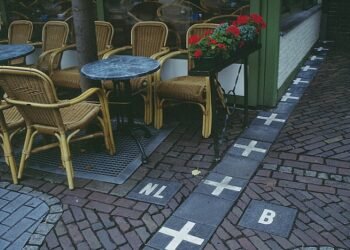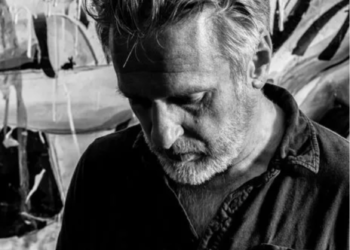Latest News
Culture and Society News
The world is evolving, and news about culture and society reflects this, demonstrating how people behave in public and interact with one another. Culture and civilization have undergone significant shifts from the societies of ancient Egypt and Mesopotamia to the global village in which we currently reside. Societies were irrevocably altered by the Industrial Revolution in the 18th and 19th centuries and the European Renaissance in the 14th and 17th centuries. As we travel across this intricate tapestry, every location we visit—from the bustling metropolises of Tokyo and New York to the site of the French Revolution in Paris—sets the stage for the narrative of human life. The emergence of social media platforms in the 21st century has altered the dissemination of cultural and social news and enabled real-time global communication.
Major events in Belgium
The history of Belgium is a complex fabric of events that have molded its identity and influenced the course of Europe. Throughout history, Belgium has held significant prominence as a prominent historical hub. The Battle of the Golden Spurs in 1302, which took place near Kortrijk, the Peace of Oath in 1357, and the deportations of Jews from Brussels and Ghent during the 14th and 16th centuries, hold great historical significance in Belgium. Leopold, became the first King of Belgium in 1831 after the Belgian Revolution gained independence from the Netherlands in 1831. Events of World War I such as the German invasion of 1914 and the Battle of Liège demonstrated the power of Belgium. Cultural achievements such as the 1905 Exposition Universelle et Internationale de Liège and Sandra Kim’s 1986 Eurovision Song Contest win are part of the country’s rich history. These great events demonstrate Belgium’s resilience, cultural diversity, and historical relevance, which continues to this day.
The national holiday lists
Belgium’s national holidays reflect its culture and history. These dates, which combine fixed and regional holidays, are important for Belgians and visitors. Important Dates:
- New Year’s Day – January
The first celebration of the new year across the country.
- Belgium celebrates Labour Day(Dag van de Arbeid) on May 1.
Respecting the rights and achievements of workers.
- July 21 is Belgium’s National Day (National Feestdag).
Commemoration of King Leopold I’s accession to the throne in 1831 with parades and festivities.
- July 11, Festival van de Vlaams Gamenshop (Flemish Community Day)
The statement honors Flemish culture and identity, particularly in Flanders.
- Day of the French-Speaking Population (Fête de la Communauté française): 27 September
The celebration honors the heritage and contribution of the French-speaking population in Wallonia and Brussels.
- Hemelvaart Ascension Day—date varies.
40 days after Easter, Christians celebrate the ascension of Jesus Christ.
- Pinkstermanandag (Wit Monday) — date varies.
The day after Pentecost, when the Holy Spirit descended on the apostles, was celebrated.
- Celebrate All Saints’ Day (Allerheiligen) on November 1st.
A day of remembrance and meditation is observed across the country to pay homage to all the saints and martyrs.
- third Sunday of September in the Walloon region.
Southern Belgium celebrates its culture and traditions.
- On 8 May, Brussels-Capital Region
Fête de l’Iris celebrates its identity and diversity through cultural activities and festivals.
Famous Food in Belgium
Belgian cuisine is a vibrant blend of Dutch, German, and French influences. Famous Belgian dishes include:
- Waffles from Belgium: Waffles are one of the famous Belgian dishes.
- Frites: Frites are a popular street snack that originated in Belgium and are crispy potatoes.
- Geniver: Gin’s precursor is Geniver, a Belgian drink flavored with juniper.
- Waterzoi: A stew of fish or chicken prepared in Gantt style, thickened with cream and egg yolk in a vegetable broth.
- Steak Frites: A simple but delicious pairing of beef steak and Belgian fries.
- Boulet à la Liegeois: Meatballs from Liege served in a delicious sweet and sour sauce.
- Carbonnade a la Flamande: A stew made with Flemish meat, onions, and beer — Carbonnade a la Flamande.
- Filet American: French steak tartare-style cold, seasoned ground beef.
- Filet American: Fries and mussels served in a creamy sauce are a staple of Belgian cuisine.
- Cubberdon: Cones with sweet syrup centers made of sugar and gelatin.
These dishes highlight the diverse and delicious cuisine of Belgium by combining classic recipes with unique ingredients.
Lifestyle in Belgium
Belgium’s way of life comes from its long past, rich cultural heritage, and unique mix of influences from other places. In 1830, Belgium broke away from the Netherlands and became a strong country in Europe. It also had a lot of good times. After World Wars I (1914–1918) and II (1940), the values and strength of Belgian society changed a lot. In 1951, when Prince Baudouin was crowned, it was a big event in the history of the Belgian royal family. By ratifying the Treaty of Rome and joining the European Economic Community (EEC) in 1957, the country showed its support for uniting Europe. A lot of people know that Belgium is open to new ideas. Along with the 2003 promise to destroy all nuclear power plants by 2025, the government made the decision to ban suicide. The constitution of 1993 set up autonomous regions in Wallonia, Brussels, and Flanders. These areas show how language and geography are closely connected. Some people thought that when Belgium joined the euro in 2001, prime ministers would step down and new governments would be made. They were valued along with the country’s long-standing customs of living in balance, modernization, and keeping Europe together.
Pop culture in Belgium
Belgium’s pop culture shows off its cultural history by combining old and new ideas in a lively way. From becoming independent in 1830 to joining the Benelux Customs Union in 1948 and then NATO in 1949, many events in Belgium’s history have had an impact on its culture. In the 1950s, when Prince Baudouin was crowned king and King Leopold came back, they changed Belgian popular culture. By joining the EEC in 1957, Belgium showed that it wanted to be a part of Europe. This hurt the community ties. People became more aware of Belgium’s wide range of languages when its constitution was changed in 1993 to divide the country into Wallonia, Brussels, and Flanders. Events like the introduction of the euro in 2001 and the approval of euthanasia in 2002 had a big impact on Belgium culture. Because of these changes, the culture became more alive and included both traditional and modern elements.
Cultural heritage in Belgium
Belgium’s culture is unique because of its long past and unique location. When Belgium became a country in the 1830s, France, Germany, and the Netherlands had a big impact on its culture. Belgium became more powerful on the continent after World War II because it was a key part of making NATO in 1949 and the Benelux Customs Union in 1948. The year 1951 was important in Belgian history because it was when King Leopold came back and made the Prince, who was Bedouin, king. When Brussels signed the Treaty of Rome in 1957, it became a part of the European Community. The constitution from 1993 says that Wallonia, Brussels, and Flanders are all parts of Belgium. It became legal to suicide in 2002, and you could use the euro in 2001. Belgium is an EU country that values cooperation and difference. It is modern and well-cultured.


















